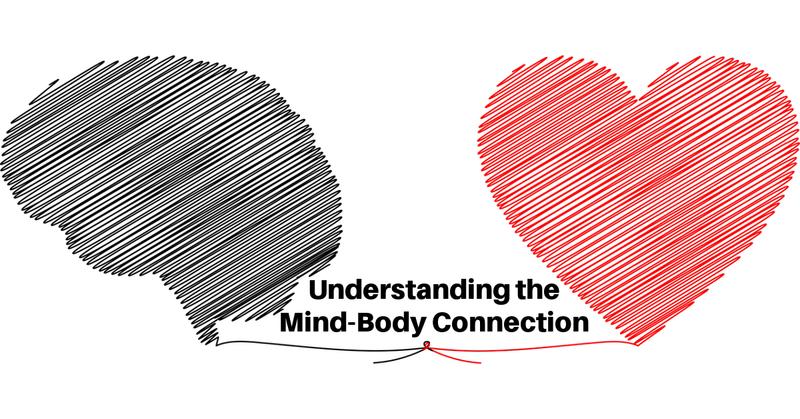The Profound Link Between Mind and Body: Understanding the Mind-Body Connection
In the multifaceted tapestry of human existence, the concept of the mind-body connection has emerged as a fascinating and essential element of holistic well-being. This intricate relationship underscores the profound interplay between our mental and physical states, highlighting how they coalesce to shape our overall health, resilience, and even our ability to heal. The exploration of this delicate connection has led to a deeper understanding of the human experience and has paved the way for integrated approaches to health and wellness.
A Paradigm Beyond Separation: Mind and Body
Traditionally, the human body and mind have often been approached as separate entities, treated by distinct branches of medicine – physical health managed by medical doctors and mental health by psychologists or psychiatrists. However, the ever-evolving field of science, psychology, and medicine has unveiled the intricate interdependence between the two. The mind and body are not isolated realms, but rather two facets of a unified system.
The mind-body connection acknowledges that our thoughts, emotions, beliefs, and attitudes can directly influence our physical well-being. Likewise, our physiological state, including hormonal responses and neural activities, can significantly impact our mental state. This connection operates bidirectionally, creating a continuous feedback loop between mental and physical aspects of our lives.
The Science Behind the Connection
Advancements in neuroscience have provided concrete evidence supporting the mind-body connection. The brain, the epicenter of our thoughts and emotions, communicates with the rest of the body through an intricate network of neurons and neurotransmitters. For example, the "fight or flight" response triggered by stress activates the release of stress hormones like cortisol, which can impact various bodily functions, including the immune system, digestion, and cardiovascular health.
Moreover, studies in the field of psychoneuroimmunology have shown that psychological stress weakens the immune system, making individuals more susceptible to illnesses. Chronic stress has been linked to a range of health issues, from cardiovascular diseases to autoimmune disorders.
Emotions as Architects of Health
Emotions play a pivotal role in the mind-body connection. Positive emotions like joy, gratitude, and love are associated with the release of "feel-good" neurotransmitters like dopamine and serotonin, promoting a sense of well-being and contributing to physical health. On the other hand, negative emotions such as anxiety, anger, and sadness can trigger the release of stress hormones, impacting both mental and physical health.
Mindfulness practices, meditation, and relaxation techniques have gained prominence as effective tools to harness the mind-body connection. These practices enable individuals to manage stress, reduce anxiety, and cultivate a sense of awareness that allows them to respond more effectively to challenging situations.
The Healing Power of the Mind-Body Connection
The understanding of the mind-body connection has paved the way for innovative approaches to healing and healthcare. Integrative medicine, which combines conventional medical treatments with complementary practices like acupuncture, yoga, and meditation, acknowledges the synergy between mind and body in promoting health and healing.
The placebo effect, often seen as a mere psychological phenomenon, is a testament to the mind's power over the body. Research has shown that believing in the efficacy of a treatment can lead to real physiological changes, highlighting the mind's role in the healing process.
Cultivating a Healthy Mind-Body Relationship
To nurture a harmonious mind-body connection, it's essential to adopt holistic practices that prioritize both mental and physical well-being. This includes:
Regular Exercise: Physical activity not only promotes physical health but also triggers the release of endorphins, enhancing mood and reducing stress.
Balanced Nutrition: The foods we consume impact both our physical health and cognitive function. A well-balanced diet supports optimal brain function and emotional well-being.
Stress Management: Engage in relaxation techniques, meditation, and mindfulness practices to reduce stress and cultivate emotional resilience.
Social Connection: Healthy relationships and social interactions contribute to emotional well-being and a sense of belonging.
Positive Thinking: Cultivate a positive outlook, as optimistic thoughts can positively influence both mental and physical health.
Quality Sleep: Prioritize sleep, as it is crucial for cognitive function, emotional regulation, and physical repair.
The mind-body connection stands as a testament to the elaborate and profound relationship between our mental and physical states. Embracing this connection empowers individuals to take charge of their well-being, acknowledging the impact of their thoughts, emotions, and behaviors on their health. As science continues to delve into the depths of this intricate relationship, society is moving toward a more holistic understanding of health – one that encompasses both the body and the mind in the journey toward well-being.
Be the first to post a message!
